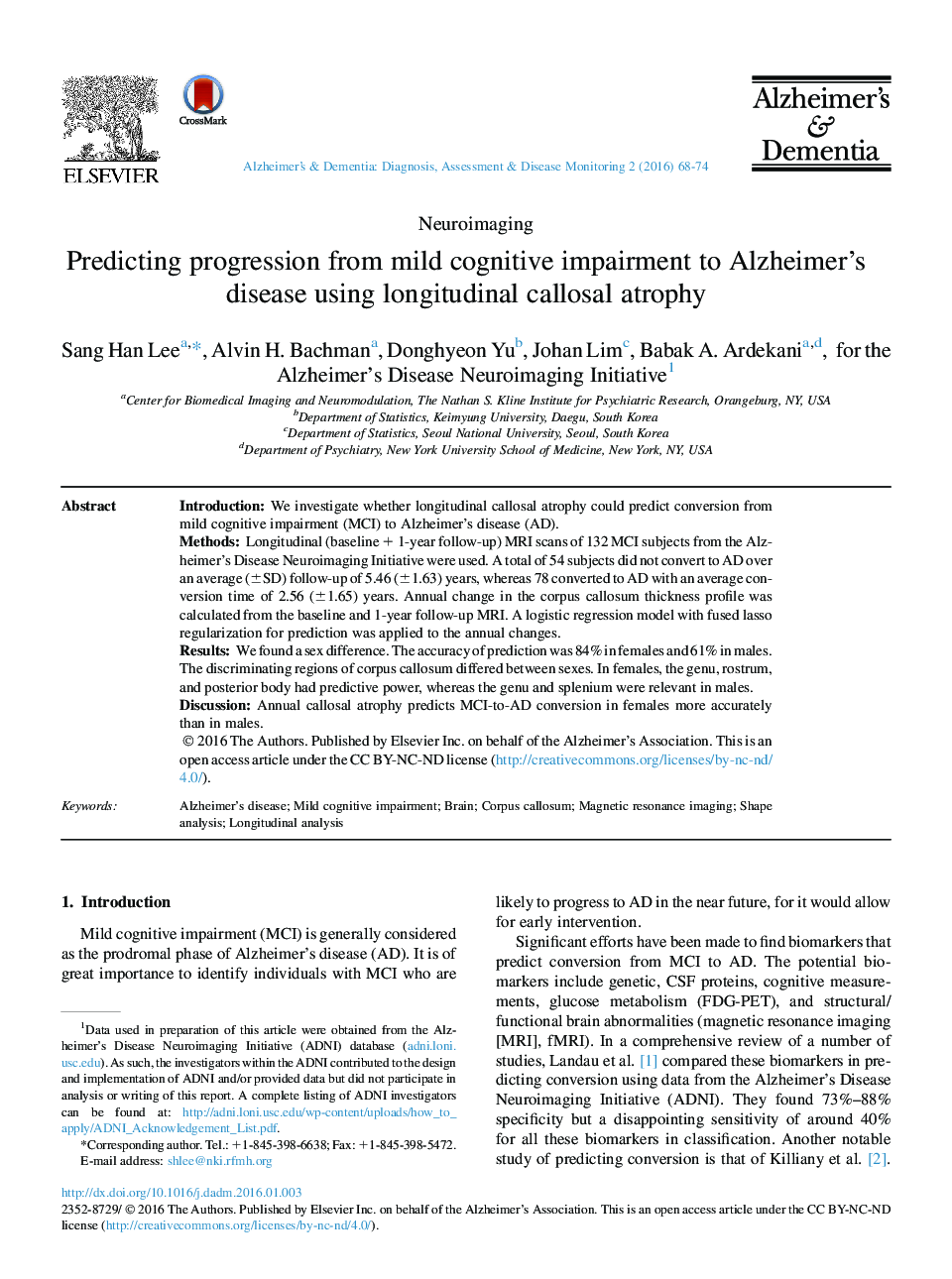| کد مقاله | کد نشریه | سال انتشار | مقاله انگلیسی | نسخه تمام متن |
|---|---|---|---|---|
| 3032002 | 1579265 | 2016 | 7 صفحه PDF | دانلود رایگان |
IntroductionWe investigate whether longitudinal callosal atrophy could predict conversion from mild cognitive impairment (MCI) to Alzheimer's disease (AD).MethodsLongitudinal (baseline + 1-year follow-up) MRI scans of 132 MCI subjects from the Alzheimer's Disease Neuroimaging Initiative were used. A total of 54 subjects did not convert to AD over an average (±SD) follow-up of 5.46 (±1.63) years, whereas 78 converted to AD with an average conversion time of 2.56 (±1.65) years. Annual change in the corpus callosum thickness profile was calculated from the baseline and 1-year follow-up MRI. A logistic regression model with fused lasso regularization for prediction was applied to the annual changes.ResultsWe found a sex difference. The accuracy of prediction was 84% in females and 61% in males. The discriminating regions of corpus callosum differed between sexes. In females, the genu, rostrum, and posterior body had predictive power, whereas the genu and splenium were relevant in males.DiscussionAnnual callosal atrophy predicts MCI-to-AD conversion in females more accurately than in males.
Journal: Alzheimer's & Dementia: Diagnosis, Assessment & Disease Monitoring - Volume 2, 2016, Pages 68–74
